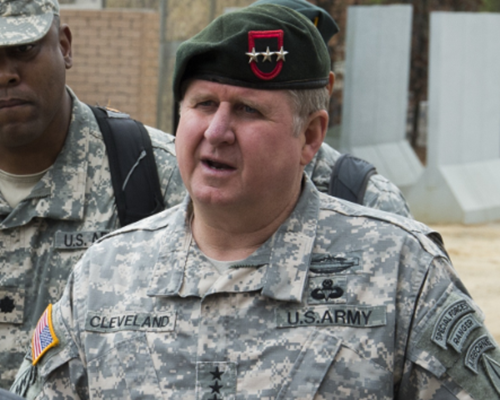
Lt. General Charles Cleveland (US Army ret.), former commander,
US Army Special Operations
Monday, February 12, 2018
4:30-6p.m.
1030 Jenkins Nanovic Halls
University of Notre Dame
National Security and Conflict Prevention
Can the United States develop an integrated national security strategy that focuses on preventing insurgency and terrorism rather than relying solely on prolonged military interventions? How can we shape the political, economic, and security environments in unstable regions to prevent war and ameliorate the conditions that give rise to armed conflict?
In 2008, Secretary of Defense Robert Gates proposed a new strategy of harnessing “the full strength of America” to build peace, stimulate economic development, and address the grievances that often lie at the heart of insurgencies and terrorist violence. Military leaders recognize that diplomacy and efforts to mediate and settle disputes are essential contributions to security and conflict prevention.
In support of these goals, U.S. forces often operate alongside civilian agencies in parallel efforts to protect civilians, facilitate dialogue, address humanitarian needs, establish more effective governance, and create economic and social opportunity.
Civilian-military collaboration in field operations can be challenging, however. Military and civilian agencies often lack guidelines and a common vision for how to interact and share responsibilities.
This event will examine these challenges and explore whether security forces and peacebuilding and development agencies can work in parallel to address problems of instability and prevent conflicts from turning violent.
Panelists:
-
Lt. General Charles Cleveland (U.S. Army ret.), former commander, U.S. Army Special Operations
-
Michael Desch, Director, Notre Dame International Security Center
-
Sara Sievers, Associate Dean for Policy and Practice, Keough School of Global Affairs
-
David Cortright, Director of Policy Studies, Kroc Institute for International Peace Studies
Sponsored by the Keough School for Global Affairs and the Notre Dame International Security Center.